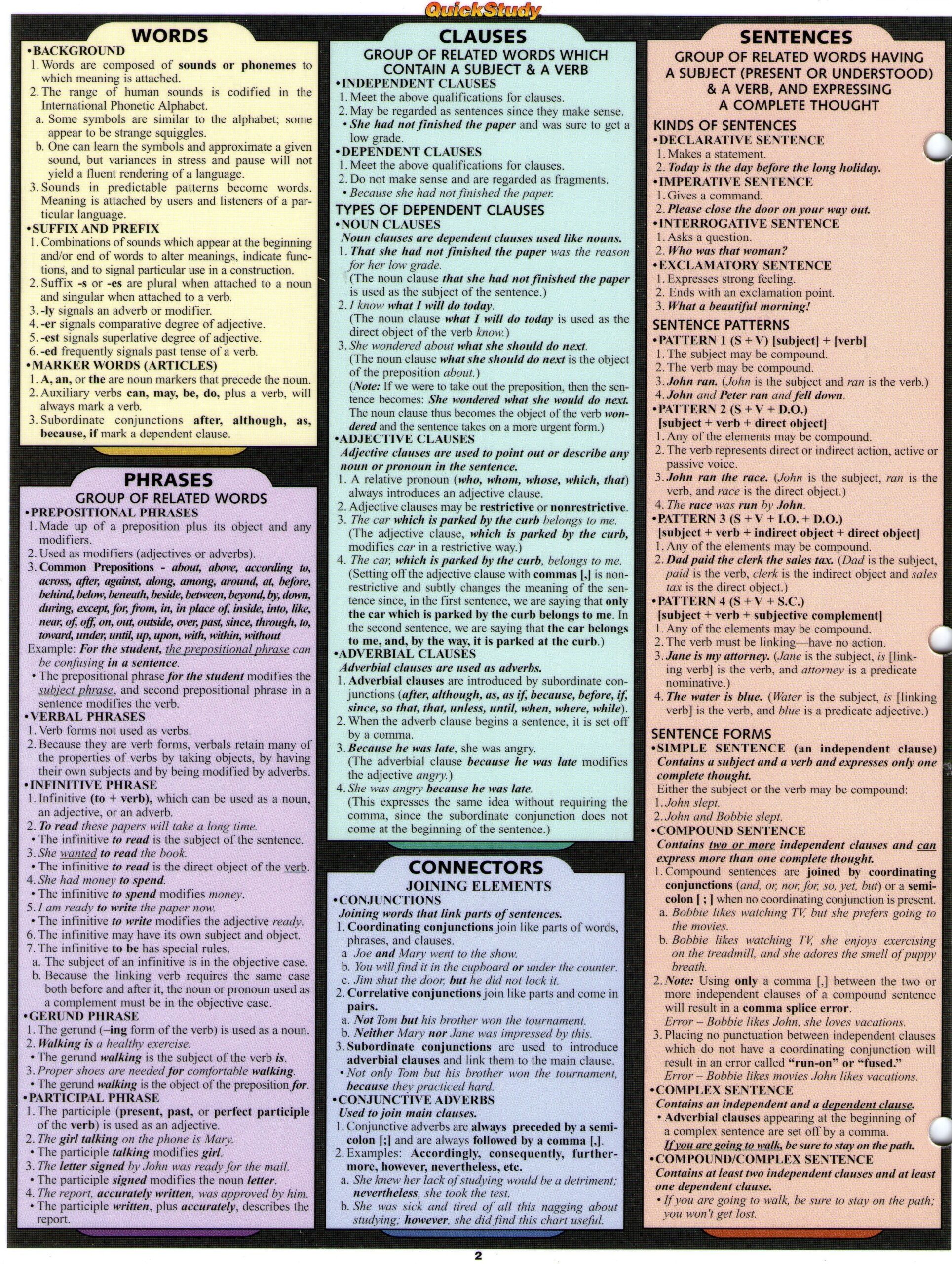English grammar can be confusing at times, but with the help of this cheat sheet, you’ll be able to brush up on the basics and improve your writing skills. Whether you’re a student, a professional, or just looking to enhance your language skills, this cheat sheet will serve as a handy reference guide.
1. Subject-Verb Agreement: Make sure that the subject and verb in a sentence agree in number. For example, “The cat is sleeping” (singular subject) vs. “The cats are sleeping” (plural subject).
2. Punctuation: Use punctuation marks such as commas, periods, question marks, and exclamation points correctly to convey your message effectively. Remember to use commas to separate items in a list and to set off introductory phrases.
3. Verb Tenses: Pay attention to verb tenses (past, present, future) to ensure consistency in your writing. For example, “She played tennis yesterday” (past tense) vs. “She plays tennis every Saturday” (present tense).
4. Pronouns: Use pronouns (he, she, they, it) correctly to avoid confusion in your writing. Make sure that pronouns agree in gender and number with their antecedents. For example, “Each student must bring his or her textbook to class.”
5. Capitalization: Remember to capitalize the first letter of proper nouns (names of people, places, and organizations) and the first word of a sentence. Avoid excessive capitalization, as it can distract readers from your main points.
By keeping these basic grammar rules in mind, you’ll be able to communicate more clearly and effectively in English. Practice using this cheat sheet regularly to strengthen your writing skills and build your confidence as a writer. Remember, mastering grammar takes time and effort, but with persistence, you’ll see improvement in your language abilities.
So next time you’re unsure about a grammar rule, refer back to this cheat sheet for guidance. Happy writing!
